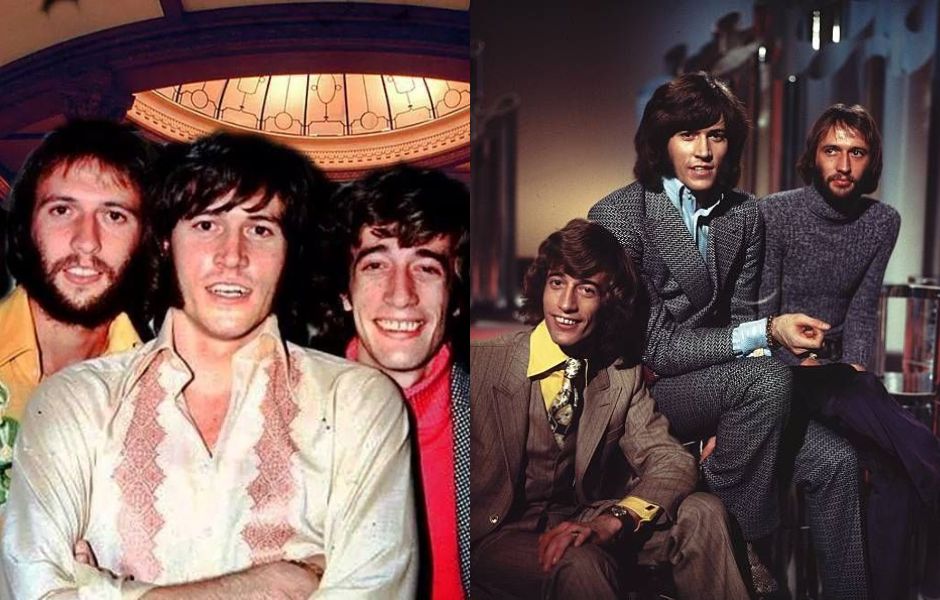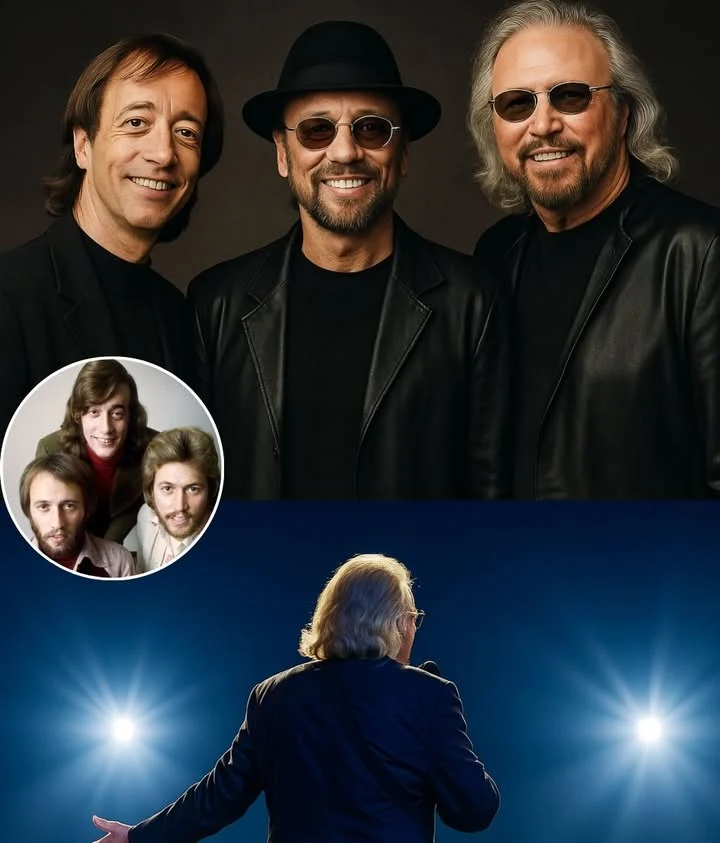
The Last Bee Gee and the Eternal Harmony of a Family’s Song
In a quiet corner of the stage, under the soft glow of a spotlight, Barry Gibb stands as the solitary figure who carries a weight far heavier than any solo career could demand. The last surviving Bee Gee, he embodies more than a name or a voice — he is the living archive of a brotherhood whose blend of love, harmony, and raw ambition reshaped the music landscape forever. Their journey was one of sunshine and shadows, notes lifted by laughter but deepened by loss. And now Barry’s voice, edged with both grace and quiet grief, sings on like a tether to history’s sweetest echo.
From the early days on the Isle of Man, where three brothers first shared bedrooms filled with dreams, the seeds of a monumental legacy took root. The family fled the cold winds for the promise of Australia’s sunlit coasts, where the boys first discovered the true magic of their voices entwined. They were guided not by the hunger for fame but by something far more urgent: the instinctive harmony born of shared blood and trust. Harmony was their language before words had meaning, and their earliest songs, full of fragile yearning, captured a purity that would only deepen with time. Classics like “To Love Somebody,” “Words,” and “Massachusetts” sounded like stories the brothers whispered to each other in the dark — about yearning before heartbreak, about love’s ache before experience could harden it.
Then came the arenas filled with glitter and disco balls, the transformative moment that shaped a generation’s soundtrack. The Bee Gees emerged with Saturday Night Fever as architects of a cultural tidal wave, their voices washing over the world with an irresistible pulse. Barry’s soaring falsetto led the way, anchored perfectly by Robin’s haunting, emotional depth and Maurice’s warm, steady harmonies. Together, their sound became the heartbeat of an era. The world didn’t just listen; it danced, it dreamed, it loved choreographed by their falsetto choruses and twilight melodies. It was as if three brothers had bottled the electricity of the night and gifted it to millions, their voices the pulse within every disco-lit memory.
But for all the fame and the glitter, there was an indelible truth beneath it all. They were brothers first, bound by a fierce loyalty stronger than any chart-topping single. The turbulent years brought triumphs but also private sorrow and struggles, culminating in the heartbreaking loss of Robin and Maurice. Today, Barry performs with the weight of that silence beside him, a presence almost palpable when he closes his eyes and the first notes of “How Deep Is Your Love” or “Too Much Heaven” cascade through the air. “When I sing,” Barry once shared, “it’s like they’re right there beside me — not just as memories but as the heart of the song. We were never just three guys making music. We were three souls sharing one voice.”
The stage in these moments is no longer just a platform but a sacred space where missing brothers live again through melody. Barry’s guitar work beneath the spotlight feels like a tender conversation, a dialogue with ghosts woven from harmony and heartache alike. He carries their love as fiercely as he carries the legacy—a legacy that is as much about family as it is about music. It is that unbreakable thread that transforms every performance into an act of remembrance, a ceremony of sound that bridges past and present.
It is a profound illustration of what made the Bee Gees larger than the sum of their parts. Yes, they changed the sound of pop music, paving the way for disco, shaping decades of sound, and creating songs that are eternal, but what truly set them apart was the inseparable bond of brotherhood underpinning their success. As Barry moves forward, he does so holding that bond in the palm of his hand, a living testament to the power of love and connection over time. “Our voices weren’t perfect in the usual sense,” he reflects, “but the connection — that unspoken thread within our music — made every note real. Even now, it feels like the three of us are singing together.”
Now as the last Bee Gee, Barry Gibb does more than keep a legacy alive; he sustains the heartbeat of a family’s triumph over life’s impermanence. Each show, each note, becomes a vow that their story — built on shared dreams, sacrifices, and harmonies — is far from over. Their song still plays on, timeless as love, eternal as a memory whispered beneath starlit skies.
And as the last chords fade out, the silence feels never quite empty. Because when Barry sings, you don’t just hear one voice. You hear all three, forever entwined, forever together.
